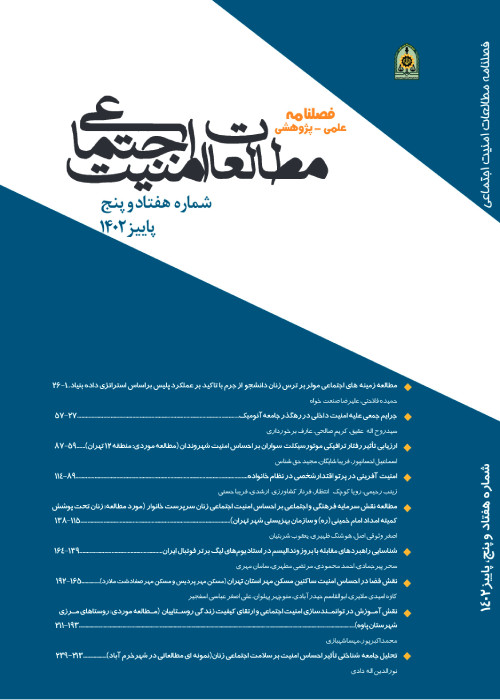Studying Social Factors Linked with Social Security Feeling among those Living in the Unconventional and Conventional Residences around Tabriz
Having a glance at the growing trend of unconventional residences around Tabriz metropolis, one may notice that establishing security in the urban structure and providing citizens with security feeling in social, economic, political and environmental dimensions is one of the important concerns of the city officials. The present study was aimed at identifying and expressing the social factors linked with the feeling of social security among those living in unconventional and conventional residences in the city of Tabriz.
The research design was descriptive and of correlational type. The statistical population included all individuals aged 15 years and above living in unconventional and conventional residences in Tabriz. The number of people in each sample group was 384. A total of 768 people were selected using multi-stage cluster sampling method, and they filled in the researcher-made questionnaire.
The research findings indicated that, level of social security feeling among those living in unconventional residences differs from that of those living in conventional residences in Tabriz. It also revealed that there is a significant relationship between cultural capital and mass media variables and the variable of social security feeling among those living in unconventional residences. The social security feeling among those living in unconventional residences is in direct relationship with factors such as marital status and education. There is no significant relationship between the variables of social capital, religiosity and age; and the variables of social security feeling among those living in unconventional residences in Tabriz. The social security feeling does not differ based on the gender and occupation of those living in unconventional residences.
The results indicated that there is a significant relationship between social capital, cultural capital, and religiosity variables; and the variable of social security feeling among people living in conventional residences. Social security feeling varies depending on the gender and occupation of those living in unconventional residences. There is no significant relationship between mass media and age variables with the variable of social security feeling among those living in conventional residences. Social security feeling does not differ based on marital status and education among those living in conventional residences.
- حق عضویت دریافتی صرف حمایت از نشریات عضو و نگهداری، تکمیل و توسعه مگیران میشود.
- پرداخت حق اشتراک و دانلود مقالات اجازه بازنشر آن در سایر رسانههای چاپی و دیجیتال را به کاربر نمیدهد.



